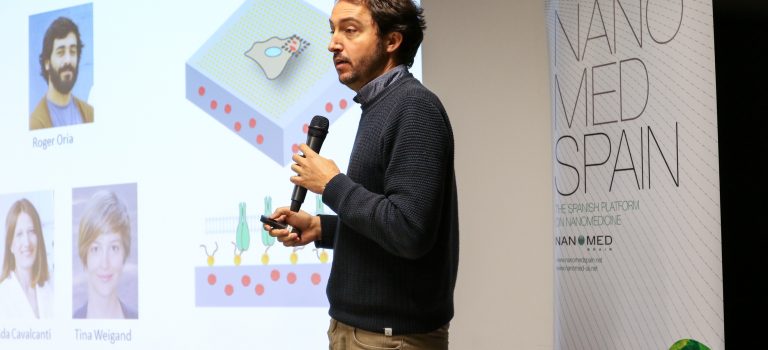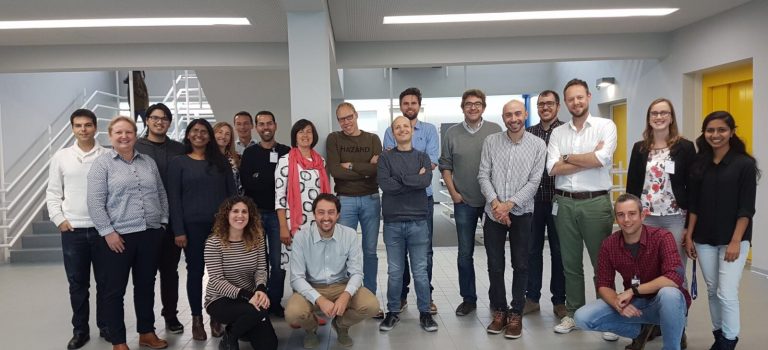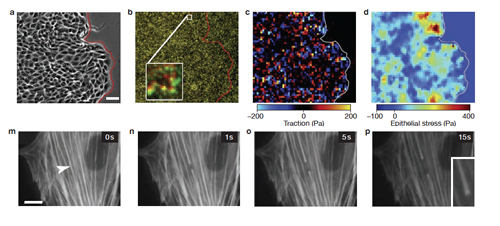 This was the moment that IBEC group leader Pere Roca-Cusachs received the City of Barcelona Award for the life sciences from Barcelona mayor Ada Colau.
This was the moment that IBEC group leader Pere Roca-Cusachs received the City of Barcelona Award for the life sciences from Barcelona mayor Ada Colau.
Pere won the prize for his study in Cell last year which identified a mechanism by which tissue rigidity regulates cell survival and proliferation, as well as its implications in diseases such as cancer and liver and lung fibrosis. The ceremony took place last night in the city council’s Saló de Cent, where the twenty winners of this year’s prizes, now in their 17th edition, were congratulated by Ms. Colau and Culture Commissioner Joan Subirats.
The prestigious City of Barcelona awards recognize outstanding creativity and research carried out in Barcelona that contribute to culture and society in the city. Image © Ajuntament de Barcelona
![]() Read more on the IBEC website
Read more on the IBEC website


 The way cells find their way around is by ‘groping’ rather than seeing their surroundings: this is the main conclusion of a study published in
The way cells find their way around is by ‘groping’ rather than seeing their surroundings: this is the main conclusion of a study published in  Philadelphia has held the last ASCB EMBO Meeting, in which many of the Mechanocontrol members have been actively involved.
Philadelphia has held the last ASCB EMBO Meeting, in which many of the Mechanocontrol members have been actively involved. In their effort to shed light on the role that physical forces play in the body, Pere Roca-Cusachs’ group at IBEC has shown how these forces ‘switch on’ the expression of genes that may result in cancer.
In their effort to shed light on the role that physical forces play in the body, Pere Roca-Cusachs’ group at IBEC has shown how these forces ‘switch on’ the expression of genes that may result in cancer. 

 Today three IBEC group leaders – Pere Roca-Cusachs, Vito Conte and Xavier Trepat – consolidate the institute’s leadership in mechanobiology by publishing a review of the field in Nature Cell Biology. Their paper, “Quantifying forces in cell biology”, summarizes a wide range of sensors and sensing methods able to quantify the forces generated by cells.
Today three IBEC group leaders – Pere Roca-Cusachs, Vito Conte and Xavier Trepat – consolidate the institute’s leadership in mechanobiology by publishing a review of the field in Nature Cell Biology. Their paper, “Quantifying forces in cell biology”, summarizes a wide range of sensors and sensing methods able to quantify the forces generated by cells.